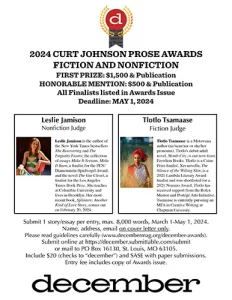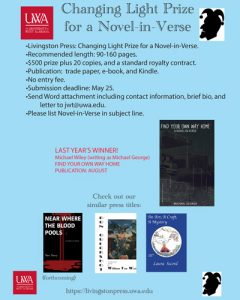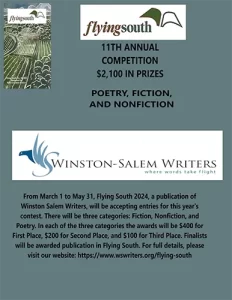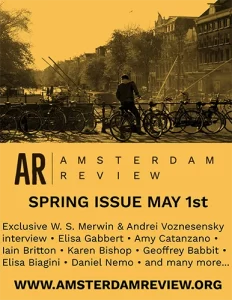A Public Space – Winter 2007
Number 3
Winter 2007
Quarterly
Miles Clark
For those who enjoyed the first two issues of A Public Space, get ready for more of the same. The journal has settled into a steady routine: its “If You See Something, Say Something” department contains a mélange of cultural criticism and ruminations on environmental changes; its comics confront the potential disunity of strict cultural roles; its poetry is experimental and edgy. It’s the poetry which is most improved, particularly Eugene Ostashevsky’s “DJ Spinoza” and Anne Carson’s “Zeus Bits” (the latter a series of lighthearted fragments worthy of Fence). In fiction, Martha Cooley’s “Month Girls” features three word processors (April, May and June) telling the stories of their names to an orphaned coworker; the arbitrariness of a name provides a smooth segue into emotional indifference.
For those who enjoyed the first two issues of A Public Space, get ready for more of the same. The journal has settled into a steady routine: its “If You See Something, Say Something” department contains a mélange of cultural criticism and ruminations on environmental changes; its comics confront the potential disunity of strict cultural roles; its poetry is experimental and edgy. It’s the poetry which is most improved, particularly Eugene Ostashevsky’s “DJ Spinoza” and Anne Carson’s “Zeus Bits” (the latter a series of lighthearted fragments worthy of Fence). In fiction, Martha Cooley’s “Month Girls” features three word processors (April, May and June) telling the stories of their names to an orphaned coworker; the arbitrariness of a name provides a smooth segue into emotional indifference.
A Public Space first achieved notoriety for what it was not: a continuation of The Paris Review. While TPR has swiftly reinvented itself with an eye towards the exigencies of a new century, A Public Space has been no less forthright in establishing itself as a University of Iowa satellite. Of its five contributing editors, three –Aviya Kushner, Yiyun Li, and Antoine Wilson – are Iowa products; its debut issue featured fiction from alums Charles D’Ambrosio and Peter Orner; Marilynne Robinson, Iowa’s oft-lauded instructor, proffered an argument for writing fiction. Issues two and three have each “introduced” the fiction of a newly-minted Iowa grad. Alum Daniel Alarcón serves as co-editor of this issue’s “focus” section.
Brigid Hughes once claimed that it was “hard” to think of good writers from this generation who had not attended an MFA program. Apparently, the greater challenge is to create a list of schools beyond Iowa where that writing is produced. In this issue’s most amusing segment, Ben Erenreich suggests that the rise of animal attacks on humans is no fluke, but a coordinated retaliatory effort to curb manmade environmental destruction. As A Public Space becomes an institution, one begins to wonder if Erenreich’s apprehension has less to do with animals, and more with the fortunes of this particular journal, particularly after the reading public discovers that its doors are bolted shut.
www.apublicspace.org




